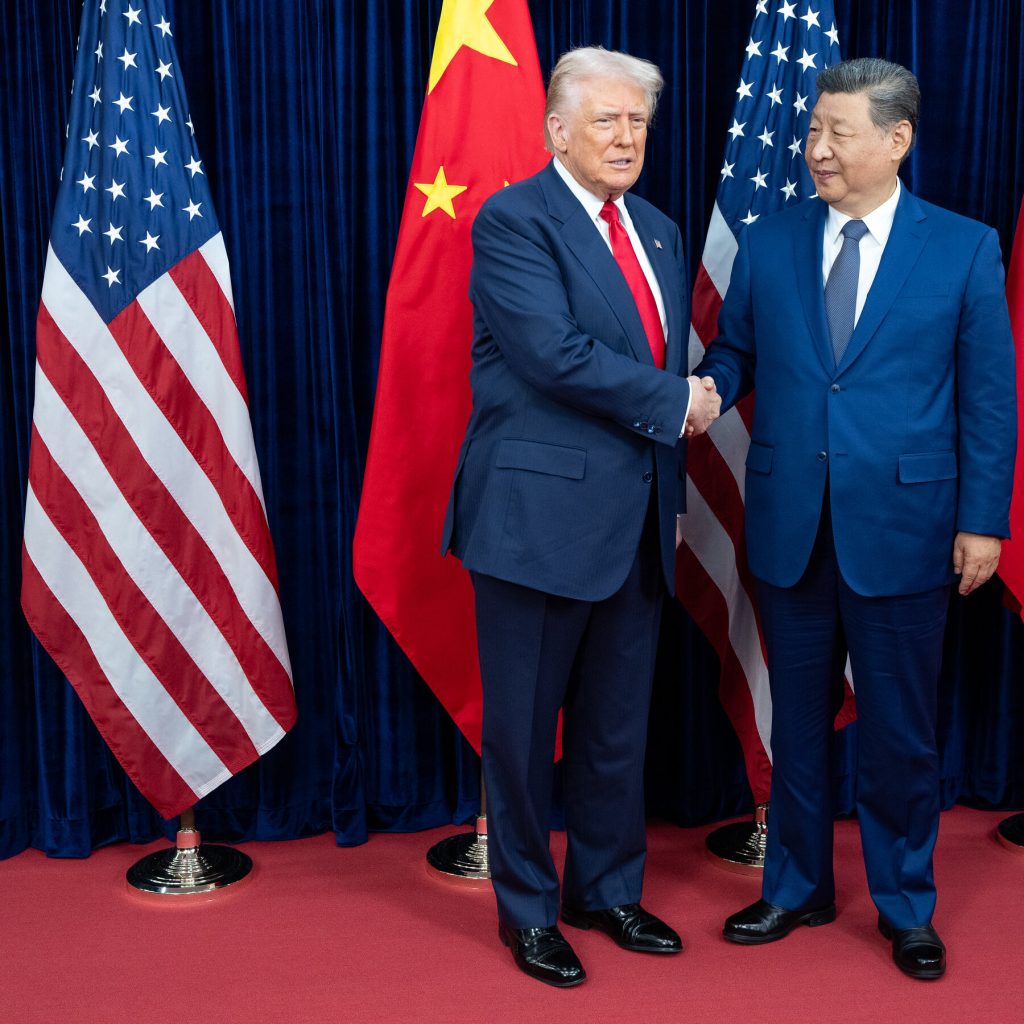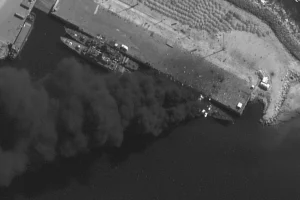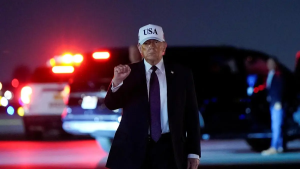Trump’s State Visit Invitation to China Amid Tensions Over Taiwan and Ukraine

President Donald Trump announced he has accepted an invitation from Chinese leader Xi Jinping to visit Beijing in April and reciprocated by inviting Xi for a state visit to the U.S. later next year. The announcement came hours after Trump spoke with Xi on the phone, discussing issues including Ukraine, fentanyl, and soybeans. The call occurred nearly a month after the two leaders met in Busan, South Korea. “Our relationship with China is extremely strong!” Trump said. Beijing, which announced the phone call first, did not mention state visits but discussed trade, Taiwan, and Ukraine.
Xi stated during the call that Taiwan’s return to mainland China is “an integral part of the post-war international order,” expressing hope for a “fair, lasting, and binding peace agreement” over Ukraine. The conversation followed Japanese Prime Minister Sanae Takaichi’s remarks that Japan’s military could get involved if China were to take action against Taiwan, an important ally of the U.S. in the region. The phone call coincided with the Trump administration’s push to end the war in Ukraine.
Sun Yun, director of the China program at the Washington-based think tank Stimson Center, said China is worried about tensions escalation with Japan, noting the reference to Taiwan and post-WWII order directly points to a spat with Japan over Taiwan. “They also talked about Ukraine. That is an issue China is interested in due to the new peace negotiation,” Sun said.
China-Japan relations have plunged to a new low following Takaichi’s remarks, with Beijing denouncing her words. Over the weekend, Chinese Foreign Minister Wang Yi said Japan “crossed a red line that should not have been touched.” Xi emphasized that China and the U.S., which fought together during the war against fascism and militarism, should “jointly safeguard the victory of World War II.” The U.S. has taken no side on the sovereignty of the self-governed island but is opposed to the use of force to seize Taiwan. It is obligated by domestic law to provide sufficient hardware to the island to deter any armed attack.
Trump maintained strategic ambiguity about whether he would send U.S. troops in case of a war in the Taiwan Strait. His administration has urged Taiwan to increase its defense budget. Earlier this month, Taiwan’s foreign ministry said it received official notification that the Trump administration approved a $330 million arms sales to Taiwan, including fighter jet parts. Beijing immediately protested the arms sale, saying it “grossly violated” the one-China principle, by which Beijing considers Taiwan to be part of Chinese territory. “China deplores and opposes that,” Chinese foreign ministry spokesperson Lin Jian said then.
The two leaders also discussed the Ukraine crisis, with Xi saying the crisis should be resolved “at its root.” The Chinese leader stressed Beijing’s support for “all efforts that are conducive to peace,” according to the statement. However, western governments have accused Beijing of enabling the war through its industrial support for Moscow. Trump said he spoke with Xi about “fentanyl, soybeans and other farm products, etc.” “We have done a good, and very important, deal for our great farmers — and it will only get better,” Trump wrote. Since meeting Xi in Busan, “there has been significant progress on both sides in keeping our agreements current and accurate,” Trump said. In the call, Xi said the bilateral relationship has “generally maintained a steady and positive trajectory” following the Busan summit, and he said the two sides should strive to make “more positive progress,” according to the Chinese foreign ministry. It didn’t reveal any concrete agreements on matters such as purchases of American soybeans.




